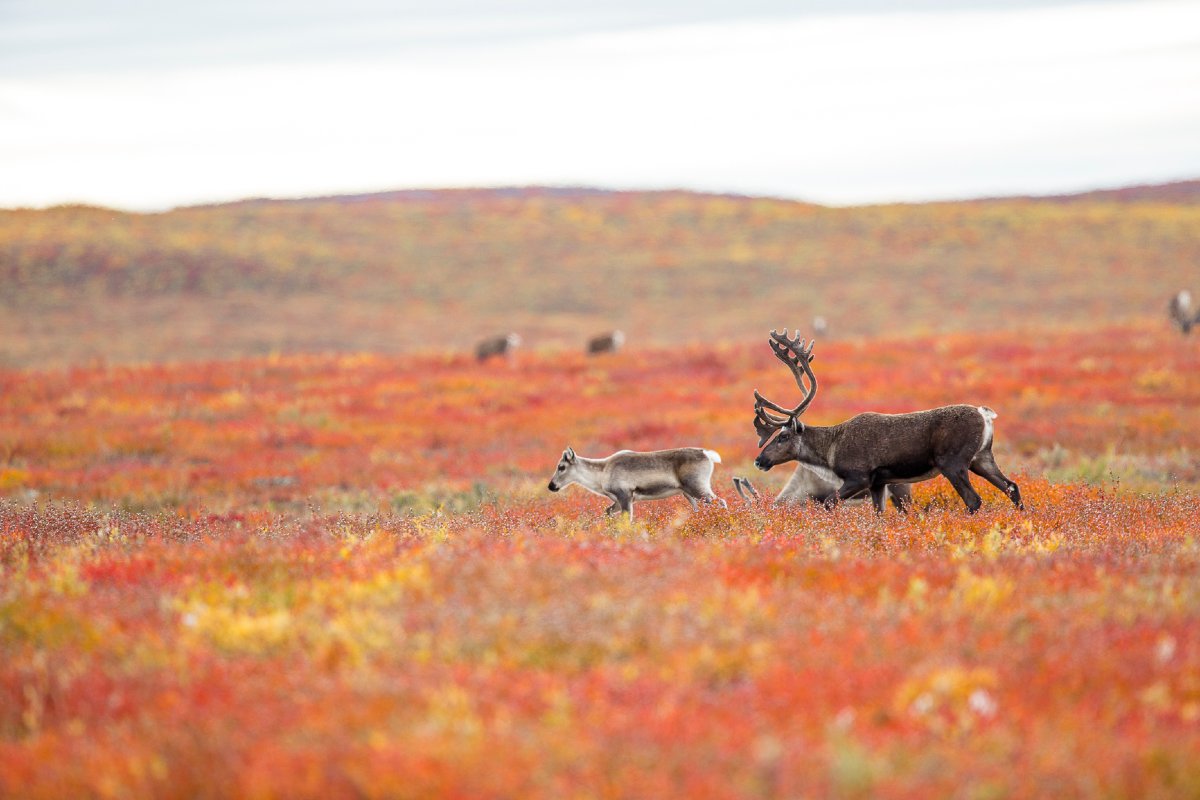
The effect of climate change on the migration and reproduction of caribou in the Canadian Arctic is being explored in a new study by UAlberta biologists. Photo supplied by Conor Mallory.
A new study by University of Alberta biologists is examining the role of climate change on the migration and reproduction of caribou in the Canadian Arctic. The results show that some species may be able to adjust their behaviour to factors such as an earlier spring.
“Climate change is clearly having major consequences for the timing of seasonal plant life cycles and reproduction by caribou in Canada’s north,” said Mark Boyce, professor in the Department of Biological Sciences. “However, in the system we studied,the timing of caribou migratory behaviour seems to be earlier in years where the onset of spring is early and later in years where the onset spring is later.”
Over the last decade, the onset of spring is now occurring approximately one week earlier in this study area in the central Canadian Arctic—a consequence of warming due to climate change. At the same time, female caribou are leaving winter ranges in the boreal forest two weeks earlier than before.
“A proposed hypothesis behind the global decline in Arctic caribou and reindeer herds is that the advanced timing of spring green up does not align with the arrival of caribou on their calving grounds,” said Conor Mallory, who conducted this research as part of his PhD studies under the supervision of Boyce.
“Our data show that instead, female barren-ground caribou might use environmental cues on their winter range to adjust their migratory behaviour to keep pace with an earlier spring on the tundra, and typically arrive on the calving ground before green-up begins. We found that late-winter conditions and snow melt on boreal winter range are important drivers of the migratory and reproductive timing of the caribou herd we studied in Canada’s north.”
Global decline
“These animals are exceedingly important to Inuit and other Indigenous peoples of northern areas, and thus it is important that we unravel the mechanisms for the population decline,” added Boyce. “This study shows that we must continue our investigation to develop a deeper understanding of these nuanced changes and their effects.”
This research was funded by the Government of Nunavut, the Natural Sciences and Engineering Research Council of Canada (NSERC), the W. Garfield Weston Foundation, and the World Wildlife Fund.
The paper, “Response of barren-ground caribou to advancing spring phenology,” was published in Oecologia (doi: 10.1007/s00442-020-04604-0)